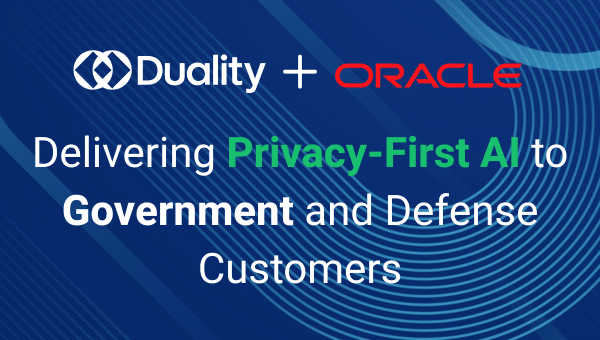Financial data aggregation is the process of gathering financial information from multiple sources and compiling it into a single, unified view. This can include data from bank accounts, credit cards, investment accounts, loans, and other financial products. The goal is to create a holistic picture of an individual’s or organization’s financial situation.
Financial data aggregation is pivotal in modern finance, driving innovations across multiple applications such as:
- Enabling personal financial management (PFM) tools that help consumers track spending, set budgets, and manage their finances holistically
- Offering robo-advisors and wealth management platforms a complete view of assets and liabilities.
- Supporting more accurate credit decisions and risk assessment
- Facilitating account opening and loan application processes through instant account verification
- Providing financial institutions with deeper customer insights for personalization and cross-selling
The Rise of Open Banking and Its Impact
The importance of data aggregation has grown significantly with the rise of open banking initiatives worldwide. Open banking regulations require banks to share customer data with authorized third parties via application programming interfaces (APIs), enabling a new ecosystem of fintech innovation built on aggregated financial data.
Leading Data Aggregation Companies
Several companies have emerged to provide financial data aggregation services, including:
- Plaid: A leading data aggregator that connects over 11,000 financial institutions
- Yodlee: One of the original pioneers in the space, now part of Envestnet
- Finicity: Acquired by Mastercard in 2020 to bolster its open banking capabilities
- MX: Focuses on data enhancement and cleansing in addition to aggregation
- Akoya: A bank-owned data access network aiming to replace screen scraping
These financial aggregators act as intermediaries between financial institutions and the fintech apps and services that consumers use. They handle the complex task of connecting to thousands of data sources and normalizing the data into standardized formats.
Types of Financial Data Aggregated
There are several key types of financial data that are typically aggregated:
- Account Information: Balances, account types, and numbers
- Transaction Data: Individual transactions with amounts, dates, descriptions, categories
- Investment Data: Holdings and performance metrics
- Credit Data: Credit scores and loan information
- Identity Information: Personal details used for verification and KYC processes
Depending on the use case, aggregators may collect some or all of these data types to provide a comprehensive financial picture.
The Technology Behind Financial Data Aggregation
Financial data aggregation relies on two primary methods to access and collect data:
- Screen Scraping: The original method used by aggregators, which involves logging into banking accounts on the user’s behalf to collect data. This approach is being phased out due to security concerns.
- API Connections: The preferred modern approach where banks provide secure APIs that aggregators can use to access customer data with proper authentication. This is being driven by open banking regulations.
Once the raw data is collected, it undergoes processes like:
- Data cleansing and normalization to standardize formats across institutions
- Data categorization to classify transactions for better insights
- Data enrichment to add additional context for deeper understanding
- Secure storage of the aggregated data to ensure data remains protected
The final step is making the aggregated data available to end users or applications through APIs or other interfaces.
Benefits of Financial Data Aggregation
Financial data aggregation provides significant benefits to both consumers and financial service providers:
For consumers, the benefits include:
- A holistic view of their finances across multiple accounts and institutions
- Improved financial management and budgeting capabilities
- Easier loan applications and account opening processes
- Access to personalized financial advice and product recommendations
For financial institutions and fintechs, advantages include:
- Enhanced customer insights for personalization and cross-selling
- More accurate credit and risk decisioning
- Streamlined onboarding and account verification
- Ability to offer innovative PFM tools and services
- Competitive differentiation through data-driven capabilities
Addressing Data Security and Privacy Challenges
While the benefits are compelling, financial data aggregation also introduces significant security and privacy risks that must be carefully managed:
- Trust Required: The traditional means of aggregating this data still requires trusting that involved organizations adhere to the controls they claim to have.
- Data breaches: Aggregators become an attractive target for hackers as they hold large volumes of sensitive financial information
- Unauthorized access: Weak authentication or insider threats could lead to improper data access
- Data misuse: Aggregated data could potentially be used for purposes beyond what the consumer authorized
- Lack of transparency: Consumers may not fully understand how their data is being collected and used
- Regulatory compliance: Adhering to data protection regulations like GDPR and CCPA across multiple jurisdictions
Financial institutions in particular have expressed concerns about sharing customer data with third-party aggregators, citing both security and competitive risks. This has led to tensions between banks and fintechs over data access.
Privacy-Enhancing Technologies in Financial Data Aggregation
To address these challenges, a new wave of privacy-enhancing technologies (PETs) are emerging to enable more secure and compliant data sharing enabling a truly zero-trust architecture. These technologies aim to unlock the value of data collaboration while preserving privacy and confidentiality.
Some key PETs being applied to financial data aggregation include:
Homomorphic Encryption
Homomorphic encryption allows computations to be performed on encrypted data without decrypting it. This enables aggregators to analyze and derive insights from financial data while it remains encrypted, reducing the risk of unauthorized access.
Secure Multi-Party Computation
Secure multi-party computation (MPC) allows multiple parties to jointly compute a function over their inputs while keeping those inputs private. In the context of financial data aggregation, MPC could enable multiple banks to collaborate on aggregated analytics without revealing customer-level data to each other.
Differential Privacy
Differential privacy adds statistical noise to datasets or query results to prevent individual records from being identified while still allowing useful insights to be extracted. This can help protect consumer privacy when sharing aggregated financial data.
By taking advantage of these PETs, financial institutions and fintechs can deliver the personalized, data-driven experiences that consumers expect while adhering to regulatory requirements and safeguarding customer trust. This is opening up new possibilities for secure data sharing and collaboration across the financial services industry.
Duality Tech & The Future of Financial Data Aggregation
As PETs continue to mature and gain adoption, we can expect to see financial data aggregation evolve in several ways:
- Increased data sharing between institutions, enabled by privacy-preserving technologies
- More granular consumer control over what data is shared and for what purposes
- Expansion beyond traditional financial data to include alternative data sources
- Advanced analytics through AI/ML on encrypted datasets
- New business models and services built on privacy-preserving data collaboration
Financial institutions that embrace these trends and invest in privacy-enhancing data-sharing capabilities will be well-positioned to thrive in the emerging open finance ecosystem.
How Duality Tech is Helping Financial Institutions Innovate
Duality Technologies is transforming financial data aggregation by combining cutting-edge privacy-preserving technology with practical, real-world applications. With solutions like homomorphic encryption and secure multi-party computation (MPC), Duality ensures institutions can unlock the full value of their data while maintaining security and compliance.
Through these tools, aggregators can:
- Detect fraud and manage risks more effectively.
- Facilitate secure cross-institution collaboration.
- Deploy AI/ML models on encrypted data without compromising privacy.
Duality doesn’t just help institutions meet regulations like GDPR and CCPA—it helps them innovate securely, build trust with clients and partners, and stay ahead in a rapidly evolving financial ecosystem.
Collaborate Without Compromise
Experience privacy-first collaboration across institutions without exposing sensitive data.
Book a Demo

















